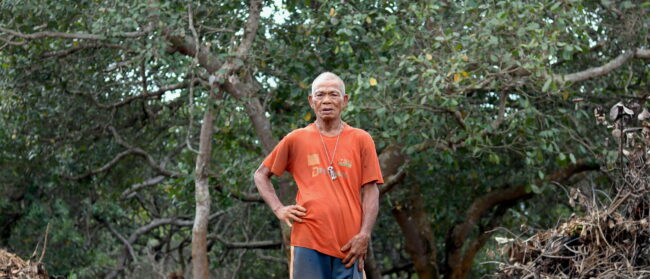As the pandemic shut physical banks across the world, Covid-19 fed the rise of ‘FinTech,’ an irrepressible shorthand for the financial technology sector that has grown into an $11 billion industry in Southeast Asia.
“It’s been an exciting and exhilarating ride since 2019,” said Loke Hwee Wong, the APAC vice president and general manager of Boku, an international mobile payments platform founded in 2009. “Thanks or no thanks to COVID, it has sort of exploded.”
But it’s not all big budget glamour. Across the region, more than 70% of the population are ‘unbanked’ consumers: invisible in the world of traditional finance, with no access to bank accounts or credit and debit cards. Small, independent merchants often also lack access to basic financial services. FinTech platforms like Boku can be a vital means to sustain their business.
Boku is focusing on these overlooked sections of society as they target Southeast Asia as a key growth market. As the Singapore Fintech Festival kicks off on the 8th November, Wong spoke to the Globe about what sets Southeast Asia apart from other global markets, the inevitable future of e-wallets and the socially conscious side of digital finance.
In a FinTech ecosystem birthing new jargon as fast as new products, Wong is refreshingly simple in his explanation of the Boku business model.
“Boku is basically a payment aggregator. We aggregate merchants, we aggregate payment methods,” he explained. “That means anything outside of credit cards or debit cards… that’s where we play.”
This playground includes more than 600 global merchant partners with whom Boku users can make payment transactions using their mobile phones. Boku facilitates digital payment transactions between the consumers and merchants, which include some of tech’s biggest players including Google, Netflix, Microsoft, Spotify, Apple, Sony Playstation, and Tencent.
In Southeast Asia, smaller merchants have the biggest need for FinTech. For many Southeast Asian consumers, it could be their only access to everyday financial services. Low financial literacy and the lack of clear credit background checks are stumbling blocks for consumers seeking credit cards from banks. Small business merchants, who are equally stymied by unaffordable banking fees, are a key target in Wong’s Southeast Asian business strategy.
“We’re talking about [people who] don’t even have a banking relationship. They don’t even have a debit card,” he described. “Some of these are maybe farmers [who have] products to sell, for example. But how do they sell? How do they reach out to the world at large?”

For Wong, Boku’s mission requires understanding the unique characteristics of the regional markets in which the company operates. His Southeast Asia strategy is based on two features.
First, the high mobile phone penetration, “which is almost ubiquitous… everybody regardless of status will own a basic smartphone.”
Second, the large unbanked population, especially in rural communities. “You can imagine the logistical difficulty. To have a credit card, you need to have electricity. You need all these terminals,” explained Wong, “and [in] some of those rural areas that’s difficult.”
To demonstrate the accessibility and mobility of financial services, Wong described how in Indonesia, GoPay, a local e-wallet company and Boku partner, has turned a lone Gojek driver into a reverse ATM. The passenger, if they want to top up their [digital] wallets, can easily do so by passing cash to the Gojek driver to perform a top up. With the digital currency loaded, the passenger can conveniently pay for his Gojek ride and purchases online digital services such as Spotify music and Netflix video.
When the global health crisis hit, digital platforms became a vital lifeline for those who needed relief quickly. Disbursement quickly became a feature of e-wallets, which was integral in distributing the Indonesian government’s Covid-19 relief fund directly to needy users, cutting out layers of inefficient bureaucracy.
“The traditional way is to give it to some of the state governors. The state governor will distil the money down and sometimes, in certain countries, it’s a bit tricky, it’s a bit complicated,” Wong explained. “By the time [the money] finally reach[es] the end user [it’s been] very long, or some of the money will be gone missing somewhere.”
By cutting down the lengthy chain of transactions in traditional banking, digital payment platforms have helped increase the efficiency of public aid, he said.
As he shared his expertise on empowering emerging economies, Wong noted the advantages Southeast Asian markets have over the West when adopting new technologies.
“Some of these emerging countries are leapfrogging. They don’t even understand what email is, because to them, the mobile phone is messaging, right? The infrastructure is not set up, like in the traditional western world [where] there is no strong necessity to come up with new innovations,” he said.
Wong believes this lack of infrastructure has accelerated the development of digital financial services.
“Necessity is the mother of invention,” he suggested. “We just come up with this disruptive technology. And that’s where this whole FinTech [thing] flourishes.”
Wong predicts that within the next five years, digital wallets will become the main method of making financial transactions across APAC. What started as an alternative payment system is now going mainstream.
“In our region, the alternative becomes the default,” Wong observed. “Whereas the traditional credit card is becoming more like an alternative now.”
The exception is Singapore, which Wong said stands heads and skyscrapers above the rest.
“Singapore, in our Asia Pacific vision, has always been a bit more discerning,” he opined. “[It] is the only country that has a very robust certification and regulatory framework to govern payments.”
This has given the Lion City a head start in financial market maturity and has proven to be a “very nice test bed” for building a solid reputation for Boku and its merchants.
“With only around 6 million people, you can’t really expect a huge revenue. But it is a very good POC, a proof of concept,” Wong said. “A lot of those merchants or partners, they will always look at Singapore to say, ‘Have you gone live [there]?’”
Looking toward the future, Wong predicts mobile payments will not just be the domain of the unbanked. Within the next few generations, he imagines, everyone from the biggest merchant partner to the “mama and papa” shops in rural communities will have borderless financial access to a global marketplace.
“Imagine when you are suddenly able to sell something to the world,” Wong said. “Just imagine the power of this.”


